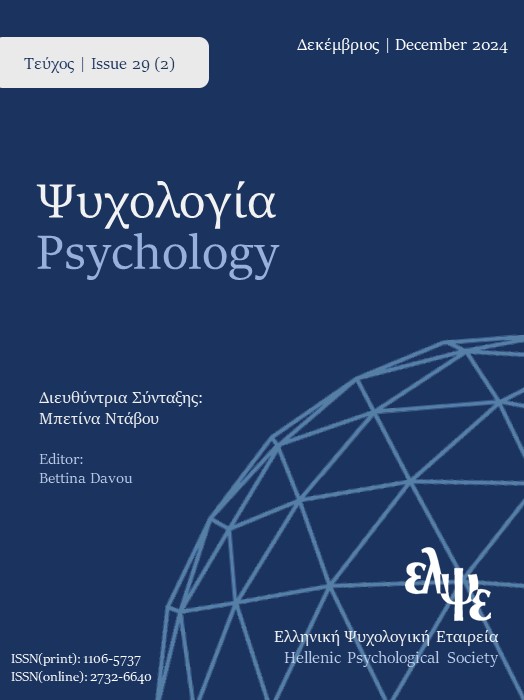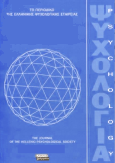The Effects of Age, Sex and Education on HVLT-R Performance Across the Lifespan: Data from the NEUROAGE Cohort

Abstract
The study investigates the impact of age, education, and sex on memory within a
diverse cohort of participants spanning the adult lifespan, utilizing the G-HVLT-R.
A total of 1,055 Greek Cypriot individuals, both males and females aged 18 to 80,
were recruited from the NEUROAGE longitudinal project. Participants underwent a
comprehensive battery of neuropsychological tests, including the G-HVLT-R for
assessing total learning and delayed recall, alongside the Logical Memory test
measuring delayed recall performance in story recall. Significant performance
disparities emerged between Forms 1 and 2 and Forms 1 and 3 of the G-HVLT-R.
Regression analyses revealed age as the predominant predictor, with the highest
coefficients, followed by education and sex. Notably, the G-HVLT-R demonstrated
robust concurrent validity, evidenced by high correlation coefficients with Logical
Memory delayed recall tasks. The findings underscore age as the primary
determinant of performance, while also emphasizing the influence of education and
sex across the lifespan. Consequently, establishing norms that account for
demographic characteristics is imperative for refining the precision of
neuropsychological assessment, particularly among those with lower education
levels and in older age groups. This information enhances accurate clinical
assessment across diverse populations and aids in identifying individuals
necessitating specific treatment interventions.
Article Details
- How to Cite
-
Nikolaou, F., Michaelides, M., Prokopiou, J., Metaxas, G., & Constantinidou, F. (2024). The Effects of Age, Sex and Education on HVLT-R Performance Across the Lifespan: Data from the NEUROAGE Cohort. Psychology: The Journal of the Hellenic Psychological Society, 29(2), 105–118. https://doi.org/10.12681/psy_hps.35866
- Section
- RESEARCH PAPERS

This work is licensed under a Creative Commons Attribution-ShareAlike 4.0 International License.
The journal PSYCHOLOGY adopts a Platinum open-access policy. Submission, processing or publication costs are waived by the Hellenic Psychological Society. Papers published in the journal PSYCHOLOGY are licensed under a 'Creative Commons Attribution-ShareAlike 4.0 International' licence. The authors reserve the copyright of their work and grant the journal the right of its first publication. Third-party licensees are allowed to use the published paper immediately after publication as they wish, provided they retain the defined by the license copyright formalities, regarding the reference to its author(s) and its initial publication in the journal PSYCHOLOGY. Moreover, any adjusted work should be shared under the same reuse rights, so with the same CC license.



